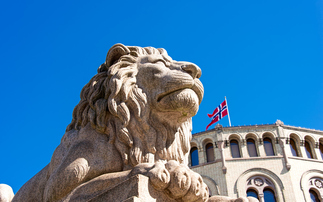COP President Laurent Fabius reportedly confirms new text now delayed until Saturday with ministers expected to break off into smaller groups in bid to reach compromises
Crunch climate change talks taking place in Paris look set to continue into the weekend, after a long night of negotiations over thorny issues relating to finance and transparency saw the strict Friday evening deadline imposed by the French presidency slip back.
According to media reports, Laurent Fabius the COP21 President and French Foreign Minister confirmed in the early hours of this morning that a new draft Paris agreement has been delayed until Saturday morning, with ministers not now due to officially reconvene until Saturday afternoon.
Nearly 200 countries have converged on Le Bourget, north Paris, to thrash out a global deal on climate change that is due to come into legal force in 2020, as well as agree key measures that countries can take over the next four years to tackle rising temperatures.
The talks were officially due to end this evening and at 9pm yesterday Fabius appeared optimistic that a final text would be on the table today, telling delegates, "I think, dear friends, that we will make it". But talks now look set to continue into Saturday and possibly Sunday.
The UN's climate change secretariat confirmed no further meetings for the Comite de Paris had been scheduled for today, with further details to be announced on when the closing plenary will take place.
It marks the first major setback for the French Presidency who have until now been highly commended by observers for their tight timekeeping and diplomatic and transparent approach to the talks.
Intense negotiations between ministers in Le Bourget have now been ongoing for more than 36 hours, with countries struggling to reach compromises on key sticking points including a long term emissions goal, how the text should differentiate between rich and poor countries, and climate finance.
Around midnight, Fabius tweeted a picture from inside the negotiations, reminding countries that the world is waiting for them to reach "the same objective" of a "sustainable, fair and ambitious accord".
Reports throughout the night suggested China spoke at length over its continued concerns that the text does not significantly recognise the differences between rich and poor countries.
Large emerging economies such as China and India have repeatedly raised concerns that they should not be subjected to the same requirements as the most developed industrialised nations, fearing the deal will lock them into delivering increased levels of climate finance for poorer countries and steeper emissions reductions that could derail their economic development.
But industrialised economies, such as the US and European Union, want the new text to recognise that the world has moved on significantly since the UN's climate convention was drawn up more than 20 years ago. They argue many emerging economies should be making a bigger contribution to tackling warming temperatures, particularly given many nations classified as developing are now amongst the richest nations in the world.
US Secretary of State John Kerry is said to have last night reiterated his argument from Wednesday's speech that the entire text is in itself "a monument to differentiation". Kerry argues the very nature of the national climate action plans means countries will individually determine how to deliver emissions cuts and pay for it. Other industrialised countries have argued they want to recognise that the nature that differentiation has changed but will not force any nations to sign up to steeper emissions cuts or increased climate finance commitments.
Observers said some progress has been made through the night. For example Saudi Arabia, which has been seen as one of the most obstructive countries during the talks, reportedly agreed the text should include a target of two degrees warming. However, it was still resisting any language referring emissions peaking.
Michael Jacobs, former advisor to Gordon Brown and now visiting professor at the Grantham Research Institute on Climate Change and the Environment, told reporters "nothing" was resolved last night and that countries are expected to split into smaller groups today in order to resolve key differences.
Yet despite the difficult discussions, observers appear to remain broadly optimistic a deal can be reached here in Paris. The strength of its ambition now remains the key question for negotiators and observers alike.
Neil Thorns, director of advocacy at CAFOD, said the deal on the table currently does not match the high ambition that many world leaders promoted at the start of the talks last week. "But we still believe parties have it in them to work for the common good," he said in a statement.
"They have 24 hours left to stand up and be counted, and deliver a deal that sets the world on a pathway to increased ambition, enabling us to respond to the needs of the most vulnerable and deal with the increasing climate impacts we are going to see."
This article is part of BusinessGreen's Road to Paris hub, hosted in association with PwC.








